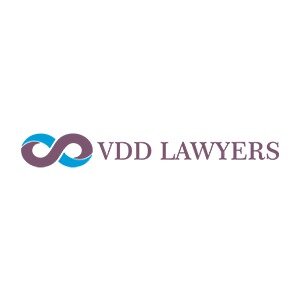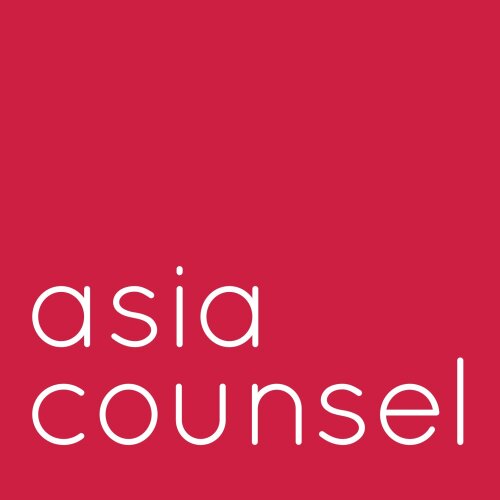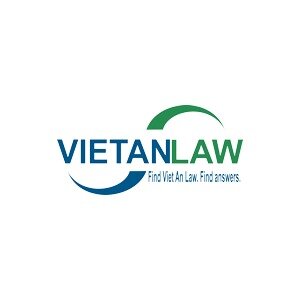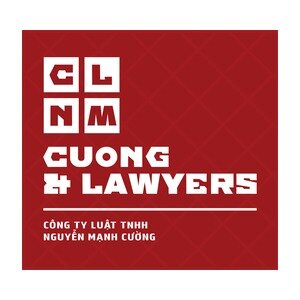Best Energy, Environment & ESG Lawyers in Vietnam
Share your needs with us, get contacted by law firms.
Free. Takes 2 min.
Or refine your search by selecting a city:
List of the best lawyers in Vietnam
Vietnam Energy, Environment & ESG Legal Articles
Browse our 1 legal article about Energy, Environment & ESG in Vietnam written by expert lawyers.
- Vietnam Rooftop Solar: New Tariffs and Self-Consumption Rules
- Factories can normally only sell excess rooftop solar power to EVN if their systems and contracts fit the specific categories defined in the latest Prime Minister decision and MOIT circulars - pure self-consumption systems follow a lighter, different regime. 2025 rooftop solar tariffs are expected to vary by project type... Read more →
About Energy, Environment & ESG Law in Vietnam
Energy, Environment & ESG (Environmental, Social, and Governance) law in Vietnam covers a broad range of legal issues related to the generation and consumption of energy, environmental protection, and corporate governance. As Vietnam continues to expand its economy and integrate with international markets, these legal areas have gained prominence, especially with the country's commitment to sustainable development and climate change objectives. Regulatory frameworks set by the government aim to balance economic growth with the responsible management of natural resources and compliance with global standards for environmental and social governance.
Why You May Need a Lawyer
There are several situations where legal advice is crucial in the fields of Energy, Environment & ESG in Vietnam. Individuals and businesses may seek a lawyer to ensure compliance with local and international regulations, resolve disputes, or support investment and development projects. Common scenarios include seeking permits for energy projects, responding to environmental incidents or alleged violations, negotiating energy contracts, managing land and resource use, addressing ESG compliance for reporting or attracting investment, and understanding obligations under new environmental laws. Having a lawyer can help you navigate complex regulations, avoid costly mistakes, and represent your interests effectively before authorities or in legal disputes.
Local Laws Overview
Vietnam's legal framework for Energy, Environment & ESG is shaped by a combination of domestic laws and international commitments. Key laws and regulations include the Law on Environmental Protection (amended 2020), the Law on Energy Efficiency and Conservation, the Law on Electricity, and investment laws governing both renewable and non-renewable energy sectors. There are also regulations mandating companies to report on their environmental impacts and demonstrate responsible corporate governance. The government has established emission standards, requirements for Environmental Impact Assessments (EIA), and guidelines for corporate ESG disclosures. Additionally, Vietnam is party to international treaties such as the Paris Agreement, influencing local policies and compliance requirements.
Frequently Asked Questions
What are the basic environmental regulations businesses in Vietnam must follow?
Businesses must adhere to the Law on Environmental Protection, which requires obtaining environmental permits, conducting Environmental Impact Assessments (EIA) for certain projects, and complying with waste management and emission standards.
Do renewable energy projects need special permits or approvals?
Yes, renewable energy projects such as solar or wind farms must obtain several permits, including investment registration certificates, construction permits, and separate environmental approvals before commencing operations.
What is ESG and why is it important in Vietnam?
ESG stands for Environmental, Social, and Governance. It reflects a company’s impact on the environment, its social responsibility, and its corporate governance practices. ESG is becoming crucial for companies seeking to attract foreign investment and meet regulatory requirements in Vietnam.
How does Vietnam regulate carbon emissions?
Vietnam requires businesses to monitor and report greenhouse gas emissions. The government has developed a national emission inventory and is preparing for market mechanisms such as carbon credits and trading systems in line with international agreements.
Are there incentives for investing in clean energy in Vietnam?
Yes, the government offers incentives such as preferential tax rates, land use incentives, and support with administrative procedures for clean and renewable energy investments.
How can a company ensure compliance with local ESG requirements?
Companies should regularly review their operations, assess environmental and social risks, maintain accurate records, report relevant data as required by law, and seek legal advice to keep up with evolving legal obligations.
What penalties apply for violating environmental laws?
Penalties can include administrative fines, suspension of operations, revocation of licenses, remediation orders, and, in severe cases, criminal charges against individuals responsible for violations.
What is an Environmental Impact Assessment (EIA)?
An EIA is a formal process required for certain projects to evaluate their potential effects on the environment before approval is granted. It helps authorities and stakeholders understand and mitigate environmental risks.
Are foreign investors subject to the same environmental laws as local companies?
Yes, all companies operating in Vietnam must comply with the same environmental and energy regulations, regardless of their ownership structure.
Where can individuals or businesses report environmental violations?
Reports can be made to local Departments of Natural Resources and Environment (DONRE) or through the Ministry of Natural Resources and Environment (MONRE) for escalated cases.
Additional Resources
For further information or assistance, the following resources may prove helpful:
- Ministry of Natural Resources and Environment (MONRE): The primary governmental body overseeing environmental protection and resource management.
- Department of Natural Resources and Environment (DONRE): Local branches managing environmental issues at the provincial and city level.
- Ministry of Industry and Trade (MOIT): Regulates energy projects, supports investors, and issues relevant guidelines and policies.
- Vietnam Chamber of Commerce and Industry (VCCI): Provides ESG consultancy and support for businesses seeking to improve compliance and attract sustainable investment.
- International NGOs and associations: Offer up-to-date guidance and support for sustainable business practices in Vietnam.
Next Steps
If you require legal assistance in Energy, Environment & ESG in Vietnam, begin by identifying your specific needs and gathering any relevant documents or information relating to your case or project. Contact a qualified lawyer or legal firm with expertise in these fields to schedule an initial consultation. It is helpful to outline your goals, challenges, and any deadlines you are facing. Be prepared to discuss your business structure, current practices, and any previous communications with regulatory authorities. A knowledgeable lawyer can provide tailored advice, help you comply with local regulations, mitigate legal risks, and represent you in dealings with government agencies or in legal proceedings.
Lawzana helps you find the best lawyers and law firms in Vietnam through a curated and pre-screened list of qualified legal professionals. Our platform offers rankings and detailed profiles of attorneys and law firms, allowing you to compare based on practice areas, including Energy, Environment & ESG, experience, and client feedback.
Each profile includes a description of the firm's areas of practice, client reviews, team members and partners, year of establishment, spoken languages, office locations, contact information, social media presence, and any published articles or resources. Most firms on our platform speak English and are experienced in both local and international legal matters.
Get a quote from top-rated law firms in Vietnam — quickly, securely, and without unnecessary hassle.
Disclaimer:
The information provided on this page is for general informational purposes only and does not constitute legal advice. While we strive to ensure the accuracy and relevance of the content, legal information may change over time, and interpretations of the law can vary. You should always consult with a qualified legal professional for advice specific to your situation.
We disclaim all liability for actions taken or not taken based on the content of this page. If you believe any information is incorrect or outdated, please contact us, and we will review and update it where appropriate.
Browse energy, environment & esg law firms by service in Vietnam
Vietnam Attorneys in related practice areas.
Browse energy, environment & esg law firms by city in Vietnam
Refine your search by selecting a city.

















